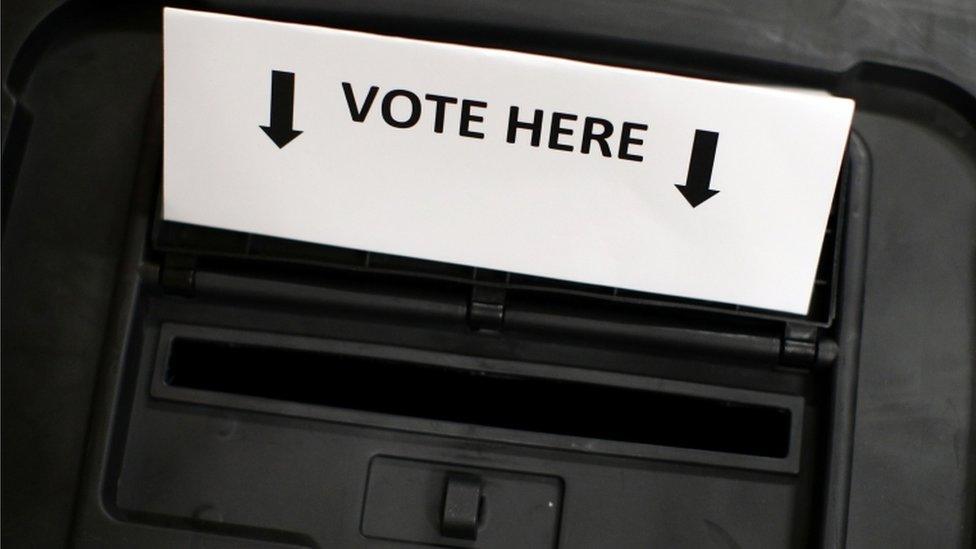London elections 2022: What's at stake?
- Published
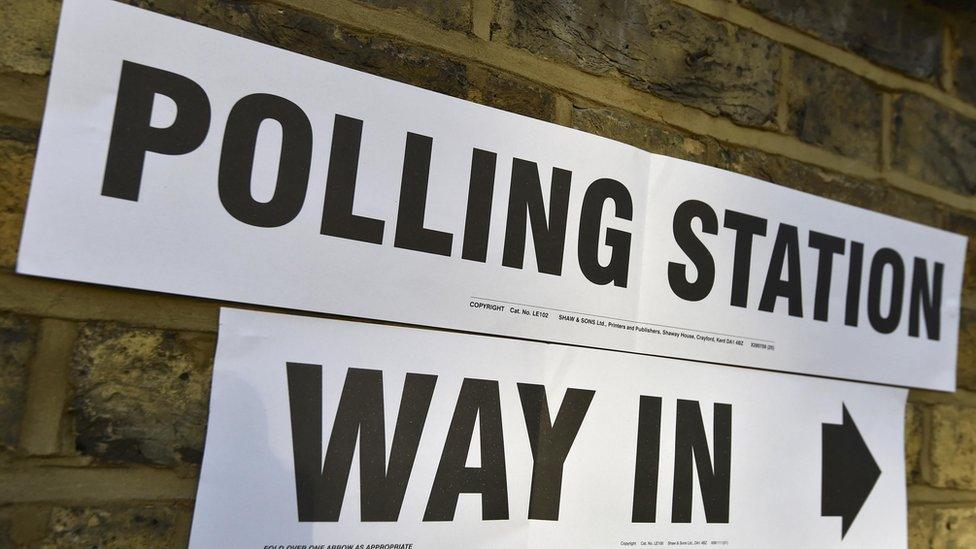
A few weeks ago, controversy over lockdown parties in Downing Street looked set to be a major factor in the London borough elections.
Some fixed penalty notices have been issued and there could still be significant fallout if more details emerge before polling day on 5 May, not least about Boris Johnson or those closest to him.
But have growing concerns about the cost of living replaced this as the number one game-changer in this election?
And what about events in Ukraine? How will a deepening global conflict shape the intentions of those voters bothering to take part in very local battles?
Whatever the prevailing forces, this will be a signal of whether Boris Johnson - twice victorious as London mayor - is losing his electoral sheen.
The Tories could slip to their lowest number of councillors in the capital.
The danger is clear in the limited polling available.
A poll by Deltapoll on 14 March, external suggested Labour could get 54% of the vote in London, a full 30% ahead of the Conservatives on 24%, with the Liberal Democrats on 9% and the Greens on 5%.
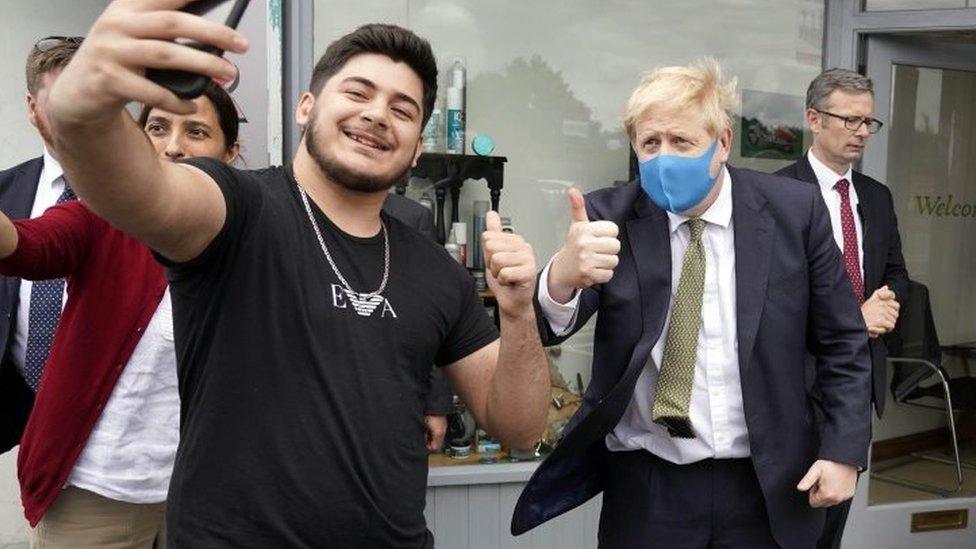
The local elections will test whether Boris Johnson is losing his sheen with voters
But this will almost certainly overstate the threat to the Tories. Their base is already low in the capital.
The 511 seats they won when these elections were last fought in 2018 was their smallest ever tally. Albeit the number of councillors overall in London has reduced over the years, so comparisons are tricky.
Could solid Tory councils fall?
Clearly, the Conservatives could lose more councillors. The question is whether the walls of the historically rock-solid Tory citadels can realistically be breached.
The Conservatives control seven councils now. Their worst record was in 1994 and 1998 when they were down to four.
Kensington and Chelsea and Westminster councils have only been Tory-run since the two boroughs were created in 1964.
The last local election in the Royal Borough of Kensington and Chelsea was fought in the wake of the catastrophic fire at Grenfell Tower.
If the Tories there could hold on by losing only one councillor, as they did in 2018, then it would seem almost certain they will do so again.
Westminster could be another matter.
There were jitters for the Conservatives here in 2018, which proved unfounded. Now they potentially face a mound-shaped challenge.
An attempt to create a post-Covid tourist attraction, the Marble Arch Mound, has been criticised and ridiculed in equal measure. It cost £6m to install and the council is already taking it down. Could it prove costly electorally too?
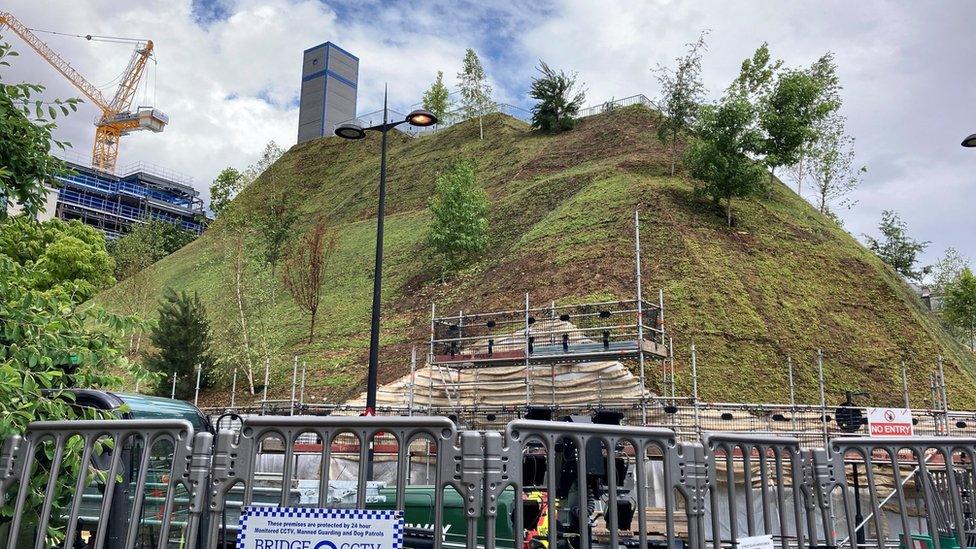
Westminster Council said it missed "clear and repeated warnings" about overspending
What is within Labour's sights?
The two councils more realistically in Labour's sights are Wandsworth and Barnet. In both, they came up short despite considerable efforts on the ground in 2018.
Back then, activists from the Jeremy Corbyn-backing movement Momentum piled into Wandsworth during the campaign. It was to no avail.
But only four seats now need to change hands for this totemic Tory council - a favourite of Margaret Thatcher - to fall.
In Barnet, the effect of accusations of anti-Semitism under Corbyn's leadership outweighed adverse publicity about the privatising instincts of the Tory administration.
The council became known as "easyCouncil" after outsourcing hundreds of millions of pounds worth of services, drawing on lessons from aviation companies like easyJet.
Some Tories confident
But some Tories are also confident they can make gains in London. Perhaps even winning Havering, which is currently in no overall control. Campaigners believe they can challenge hard in Enfield, Croydon, and Harrow where they say there's local dissatisfaction.
One Tory leader, who didn't want to be identified, insists "party-gate" is not having the impact feared.
"Oddly enough there's not been a huge reaction on the doorstep," they said.
"For the moment, to borrow a phrase from the world of policing, it's 'nothing to see here, move along'."
Extending Labour's lead?
In their wildest dreams Labour strategists could see May's elections as a series of firsts:
Their highest number of councillors
The highest number of councils in their control
victory in Westminster or Kensington & Chelsea
In reality, it will be harder to shift the dial.
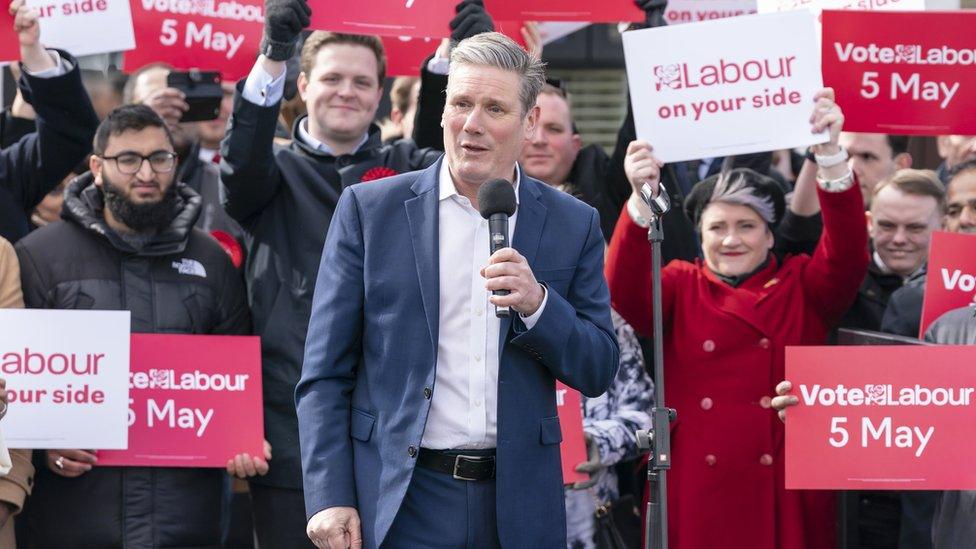
Votes have been slipping away from Labour in recent London by-elections
They need about 100 gains to surpass their previous best total back in 1971 when they had 1,123 councillors.
Back then there were more seats available. Boundary changes have reduced the overall number.
And Labour has its own hurdles. Lewis Baston has charted what's been happening at a local level for the independent news website OnLondon.
He wrote recently, external: "Council by-elections in London since 2018 have tended to show Labour slipping, first to the Liberal Democrats and then the Conservatives.
"There has been a steady drum-beat of swings of 4% or so from Labour to the Tories in London borough by-elections since December 2019.
"Local politics in some marginal boroughs - Croydon, Enfield and Harrow - have seen Labour administrations becoming unpopular."
The Lib Dems will be desperately hoping for signs of a continuing southern revival.
They seem confident they can hold on to Richmond and Kingston. As for their flagship borough of Sutton - in their control since 1990 - the Tories are putting a lot of time and effort into winning this council.
More mayors
In five London boroughs, voters will also be choosing a mayor.
Croydon will be electing its first mayor amid a backdrop of financial chaos. The politics here is febrile there is a chance of the mayor and council being of different political colour.
That could raise interesting issues of governance and accountability.
Let battle re-commence in Tower Hamlets too, which went through its own turmoil a few years ago.
Former Independent mayor Lutfur Rahman has served out his five years suspension for electoral malpractice - and is now seeking to oust Labour's John Biggs who replaced him.
Acrimony lingers and there remain scores to settle.
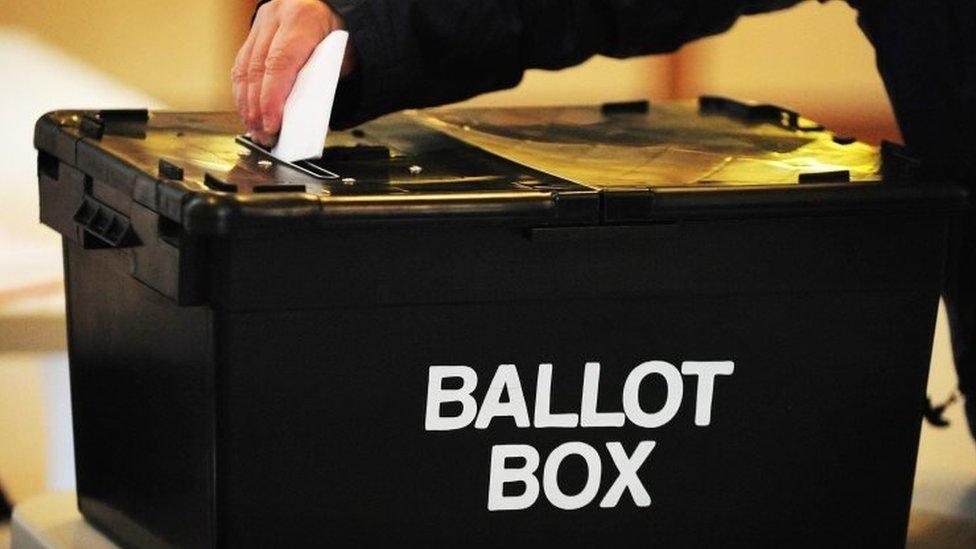
Five London boroughs have directly elected mayors
Overall though the story in London will inevitably be what it says about the government in power.
One of the strongest indicators of how far Tory support has been eroded by recent events will be what happens in Hillingdon.
There's little chance of the Conservatives losing control.
With 52% of the vote, this is where the Conservatives notched up their best vote share in London in 2018.
Any substantial desertion of voters and depletion of Tory councillors here will send a strong message.
Especially to the local MP, Boris Johnson.

POSTCODE SEARCH: Is there an election in my area?
WHAT'S HAPPENING WHERE: Really simple guide

Follow BBC London on Facebook, external, Twitter , externaland Instagram, external. Send your story ideas to hellobbclondon@bbc.co.uk, external
- Published31 March 2021
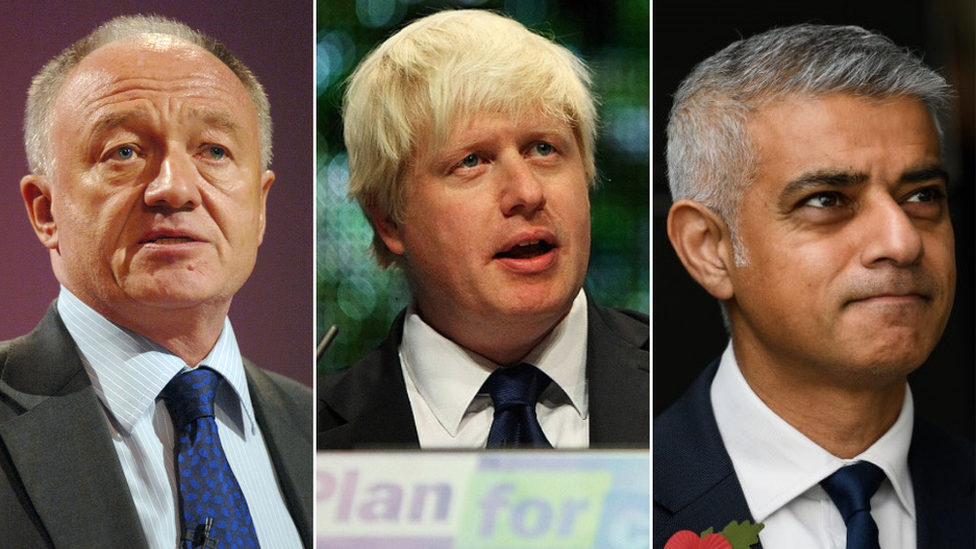
- Published28 March 2022

- Published28 March 2022
